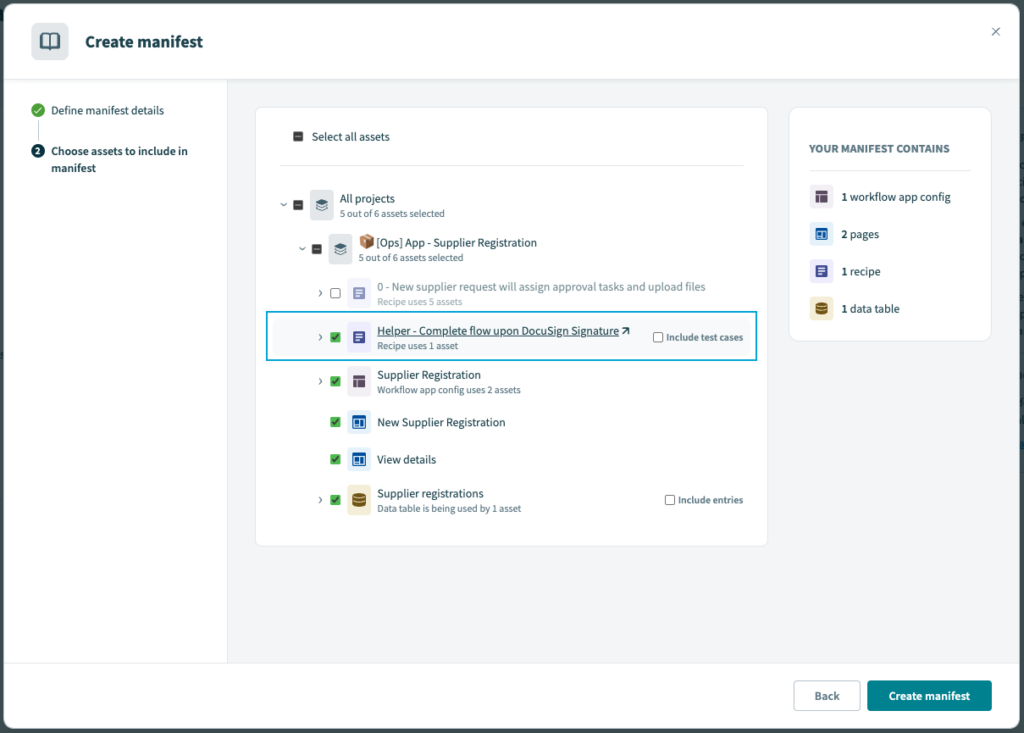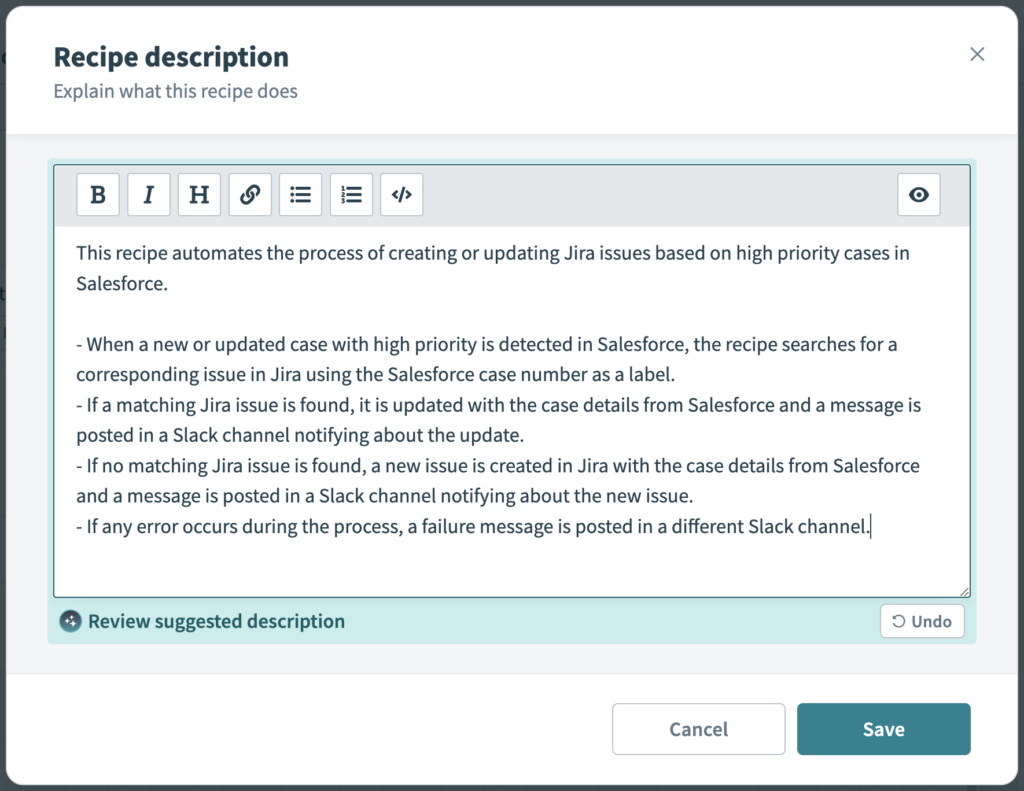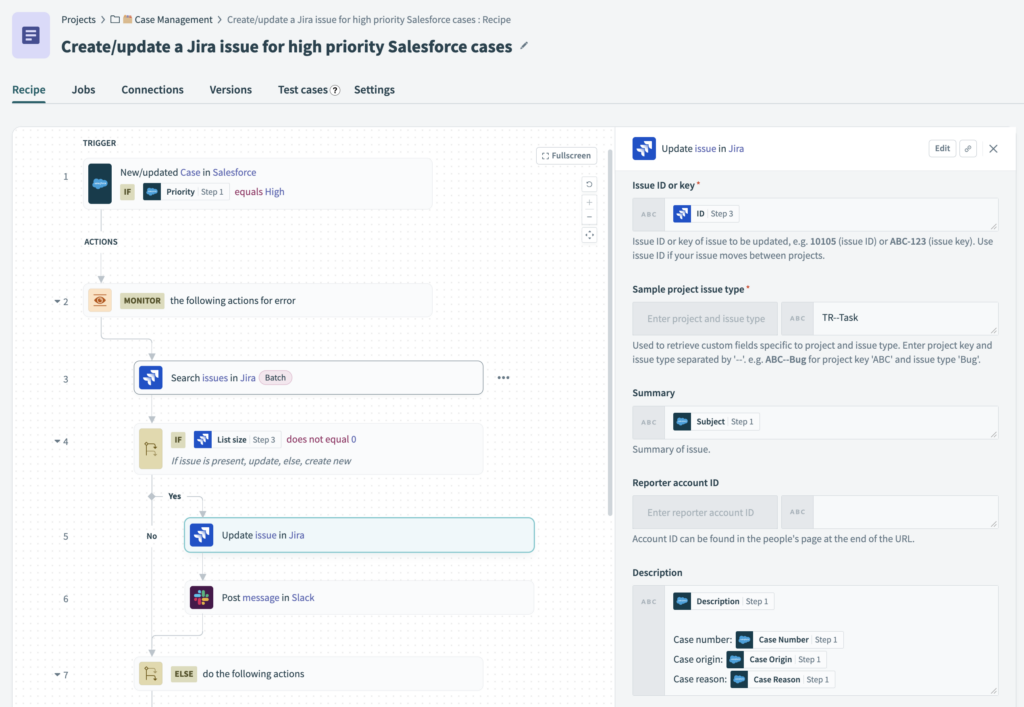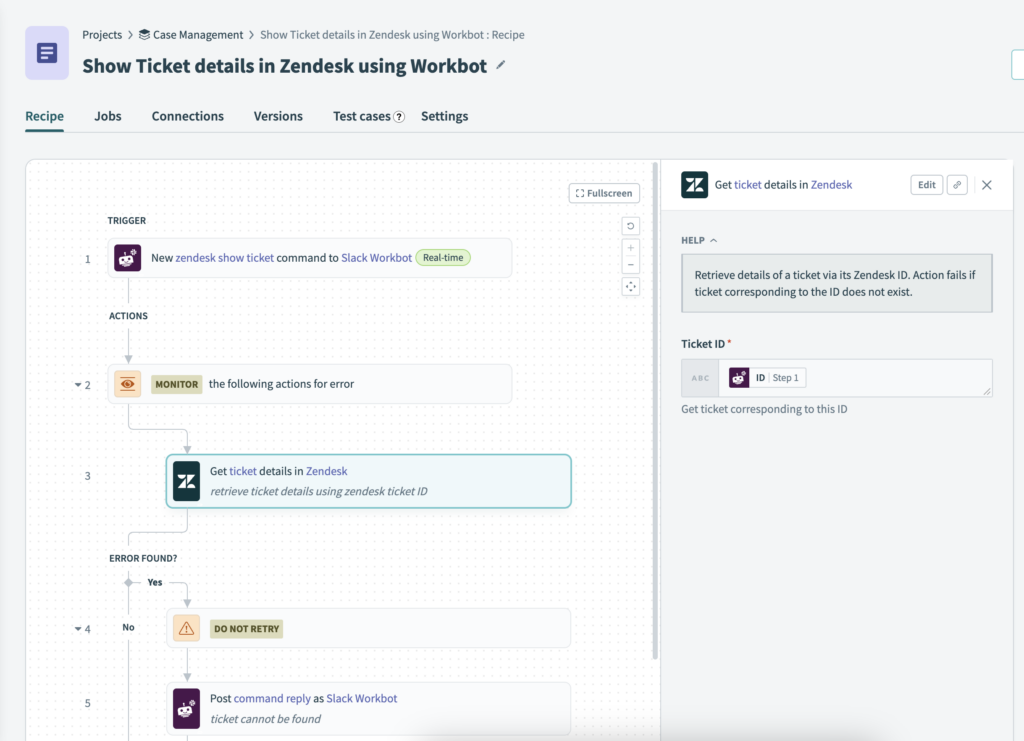Product Scoop – February 2024
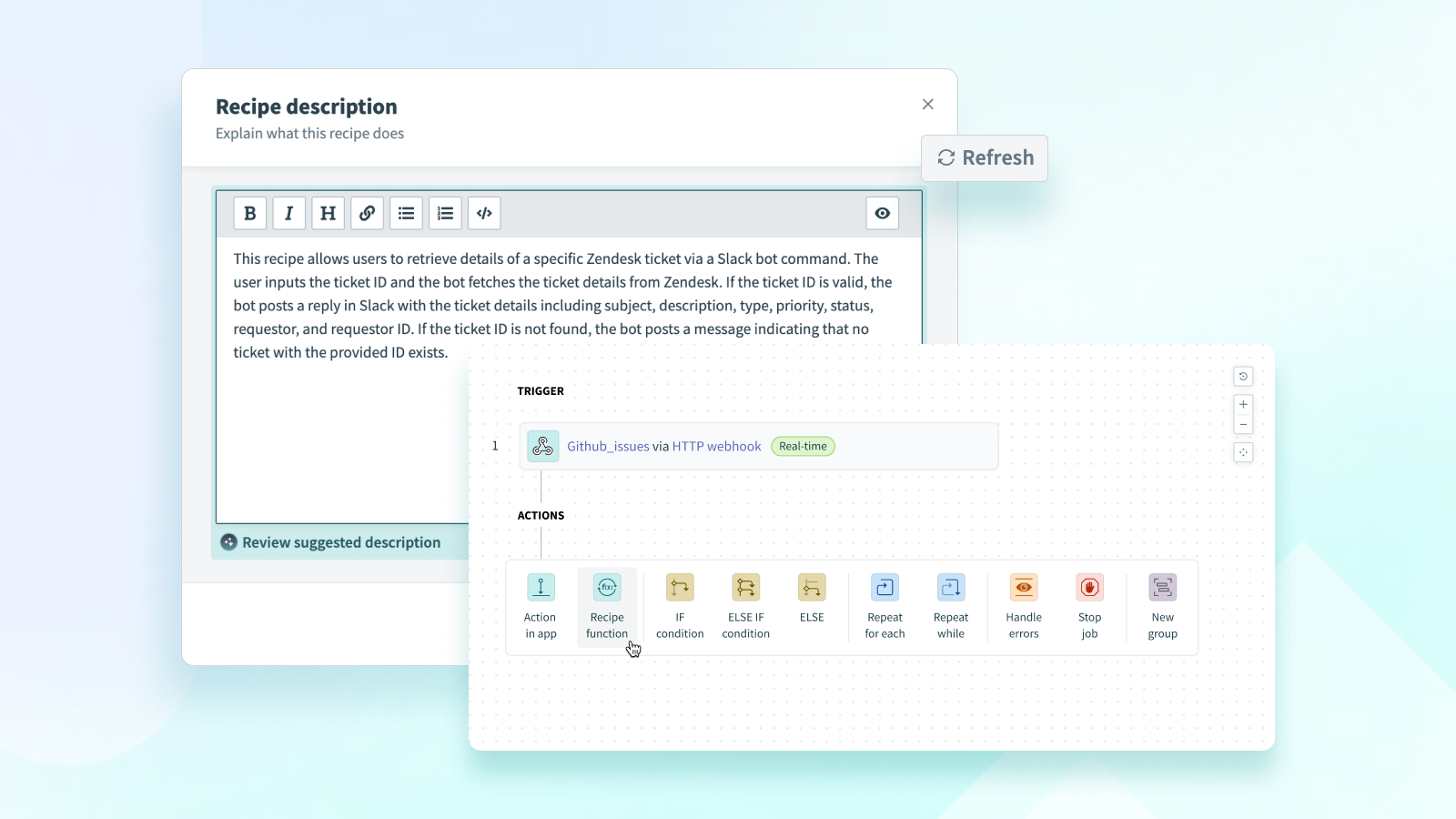
Quality of life updates
February brought many updates across the entire platform to make you more efficient and productive, and make your day a bit easier.
Builder experience
The recipe editor toolbar was updated to group similar actions together, and provide more visual contrast when adding a new step or block. Try it out for yourself in your workspace!
Developer APIs
The list recipes API has new fields and a new filter to provide more information in each request. New fields include author name, version author name, version author email, and the new filter allows refinement by the updated date.
Logging service
Now present: a refresh button! We understand that it’s frustrating to wait until the next cycle of logs to come in, so you can now refresh the logs directly from the logging service.
As we shared last month, OPA logs are also available in the logging service from version 23.0.
Recipe lifecycle management
Now, when you export manifests, you can easily check that you’ve included the correct assets by clicking on a hyperlink. This link takes you to a page with details about the asset, making it simpler to confirm you’re exporting the right items and minimizing the chance of mistakes.
Additionally, event stream retention settings are now included in exports, to ensure consistent behavior when migrating topics.
A new timeout has been added to prevent simultaneous recipe lifecycle management imports – to ensure consistent import behavior, we’ve added a 15 minute buffer between imports to the same environment. This buffer will prevent potential race conditions created by running multiple simultaneous imports.
Dashboard job totals update
We have updated the logic of the failed and retried jobs count on the workspace Dashboard. With the new behavior, the graph and job counts at the top of the Dashboard do not include retried jobs. Each job is only counted once, regardless of how many times it was retried, and the entire Dashboard consistently reflects the job’s most recent status in a time period.
Document faster with Copilot recipe descriptions
Recipe Copilot just got even more helpful – for workspaces with Copilot enabled, you can now auto-generate a recipe description based on the recipe and any called functions, making it that much easier to keep your team in the loop of what’s been built. This feature includes only the recipe blocks and inputs, but never any job data.
For access to Recipe Copilot, contact your account team.
Recipe Copilot descriptions in action
Recipe Copilot generated description: This recipe automates the process of creating a new issue in Jira when a high priority case is created in Salesforce. The Jira issue is created with the same summary, description, and priority as the Salesforce case.
Recipe Copilot generated description: This recipe allows users to retrieve details of a specific Zendesk ticket via a Slack bot command. The user inputs the ticket ID and the bot fetches the ticket details from Zendesk. If the ticket ID is valid, the bot posts a reply in Slack with the ticket’s subject, description, type, priority, status, requestor, and requestor ID. If the ticket ID is not found, the bot posts a message indicating that no ticket with the provided ID exists.
Increased reliability and observability for Webhooks
This month also brought updates to the reliability and observability for Webhooks, in a couple of key areas.
Webhook validations
We’ve expanded JSON validation to cover all webhook sources, not just native ones, so everyone can enjoy improved observability and avoid silent failures with 400 bad requests for malformed payloads. This validation will be done based on the webhook’s declared Content-Type header. Additionally, UTF-8 encoding validation now ensures that incompatible payloads for various webhook types result in clear 400 bad request responses, preventing silent failures. You can read more about webhook responses here.
Guaranteed at-most-once processing with `X-Workato-Dedup` headers
We have introduced new optional `X-Workato-Dedup` headers, allowing webhook senders to send unique values that will guarantee at-most-once processing on their recipes. You can read more about these deduplication headers here.


